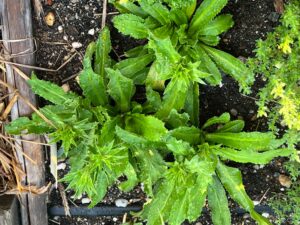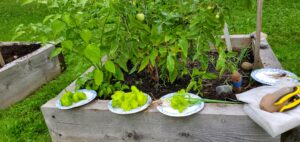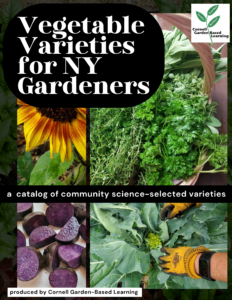Seed Catalog Created Specifically for New Yorkers
Wondering what to grow in your garden? Now you can consult Cornell’s Community Science Catalog
As they anxiously await the upcoming growing season (and warmer weather), many farmers and gardeners browse through seed catalogs to decide what to plant. A single catalog or garden center seed stand can have hundreds of varieties for growers to choose from. This abundance may cause confusion among those wondering “What will grow well in my area?” These two factors served as the inspiration to create the Vegetables Variety for New York Gardeners seed catalog. The data was created using community science data from the Vegetable Varieties for Gardeners website, which was created over a decade ago so gardeners could share their growing experiences. The 10,000+ submissions to this community science project were filtered down to 1) only reviews in New York, 2) only varieties that had an average rating of 4.0/5, and 3) had at least 4 reviews.
The result is a catalog of 40+ crops and 190+ varieties that are based on what New Yorkers are growing and having success with (see pages 3-5 for everything that’s included). Alongside standard descriptions, each variety is evaluated on 4 criteria: Overall. Taste, Yield, Ease to Grow. This information will help growers choose the variety with traits that best suits their needs. For more detailed information on navigating the information on seed packets, check out a recent podcast episode on seed selection from Extension Out Loud.

A sample of the information included in the Vegetable Varieties for NY Gardeners Catalog. Cornell Garden Based Learning
A Guide that Grows with You

Culantro (Eryngium foetidum) is a pungent green herb native to Mexico, the Caribbean, Central, and South America. This herb was grown as part of the “2022 Cultural Roots of the Americas” trial. Cornell Garden Based Learning
This catalog is by no means the definitive guide on what can or is being grown in New York. Rather, it is a collection of varieties we have data on. As more individuals submit ratings, more varieties and crops can be included. Unfortunately, Extension programs often lack the knowledge or resources on how novel crops may perform in New York, hindering their ability to effectively serve everyone in the state. Included in this catalog are reviews from the Vegetable Varieties Trial Gardens, a community science project carried out by Master Gardeners in NY.
In recent years, the varieties and crops trialed have focused on some of the most prominent crops from specific regions, including Latin America, the Caribbean, and East Asia. New York is one of the most diverse areas in the country, but the chilly climate is often different from the home countries of many New American (immigrant) communities. We hope that the living nature of this document will help provide culturally relevant growing information as well as introduce the diversity of crops and cultures to a wider audience. Submitting varieties to the VVfG website allows any individual to share varieties that are important to them with a global group of gardeners.
Community Science Creates Change

Master Gardeners evaluating ‘Aji Dulce’ peppers, a popular Venezuelan variety. Ratings are submitted to the Vegetable Varieties for Gardeners website. Cornell Garden Based Learning
The thousands of gardeners across the state will be able to collect massive amounts of data on how crops perform in real gardens. The real-world evaluation takes place across 27 counties, 5 growing zones, and in the conditions that these crops will actually be grown in. This scale is nearly impossible to replicate on research farms. Additionally, plants are often bred under ideal conditions–carefully attended to with ample fertilizer, water, weeding, and more–in tropical areas farm from NY.
Community science allows their performance to be evaluated in the conditions gardeners will be growing them. We use the term community science, instead of citizen science, because Extension resources and participation should be open to everyone.
Help Us Improve this Resource

Scan to access the Catalog Evaluation Survey
If you found this resource helpful, it would be greatly appreciated if you filled out this Qualtrics Survey. This will help us evaluate if this is an appropriate method of sharing information and will help a student researcher with their project.
For more information about gardening in New York State or any of the programs mentioned, visit the Cornell Garden Based Learning website.


